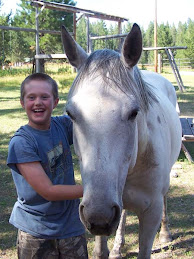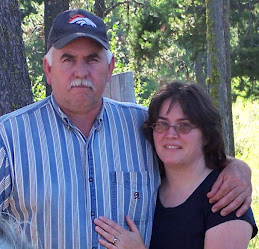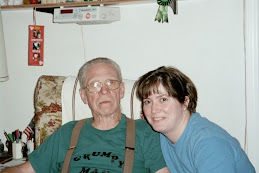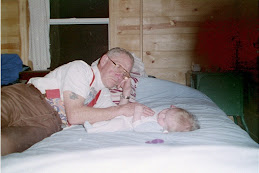Portfolios
I agree 100% of NCTE's recommendations on how to use portfolios effectively. I say this because it sounds logical, and I have no hands-on with portfolios yet. I especially like the idea of organizing it into sections and weighing the portfolio and paper grades independently. I'm just not certain that I agree with the prioritization of the levels of concern. I might categorize them in the same manner but title them differently.
Top 10 Reasons to Revise
1. You just can't help yourself! Revision occurs throughout the writing process.
2. Revision can generate new ideas.
3. Revision can result in a better structure/organization.
4. Revision may mean throwing out pieces thereby creating a stronger whole.
5. The idea of revision being recursive blows a hole in the linear model of writing.
6. Finding strong nouns/verbs instead of adjectives/adverbs strengthens your writing.
7. To flush out ideas from generalizations to snapshots or thoughtshots.
8. To make sure your tone is appropriate for your audience.
9. To focus on word choices and add details that make your piece sing.
10. Because your teacher tells you to.
2. Revision can generate new ideas.
3. Revision can result in a better structure/organization.
4. Revision may mean throwing out pieces thereby creating a stronger whole.
5. The idea of revision being recursive blows a hole in the linear model of writing.
6. Finding strong nouns/verbs instead of adjectives/adverbs strengthens your writing.
7. To flush out ideas from generalizations to snapshots or thoughtshots.
8. To make sure your tone is appropriate for your audience.
9. To focus on word choices and add details that make your piece sing.
10. Because your teacher tells you to.
Grades and Grading
I've always bought into Mastery Learning where the focus is on growth and comprehension. I was shocked and impressed with the rubric for NIWP, and also relieved. It expressed a vote of confidence, not just expectation, toward the whole group.
A superintendent recently told me that he didn't see the point of students getting anything lower than a C, as it doesn't show any growth or success. He suggested a grade of "not yet," Blynt's sentiment exactly. He also said that he thought that grades should be reflective of what students know. Maybe middle school students don't buy into grades, but obviously college students do. We need to find a system that de-stresses students to open them up to learning. Pressure exerted does not result in good product or learning.
The question remains: What system identifies both individual competencies AND growth?
A superintendent recently told me that he didn't see the point of students getting anything lower than a C, as it doesn't show any growth or success. He suggested a grade of "not yet," Blynt's sentiment exactly. He also said that he thought that grades should be reflective of what students know. Maybe middle school students don't buy into grades, but obviously college students do. We need to find a system that de-stresses students to open them up to learning. Pressure exerted does not result in good product or learning.
The question remains: What system identifies both individual competencies AND growth?
What I've Learned from our Workshops
- Creating a sense of community in our classrooms is critical. Creating a sense of community in a workshop is difficult but at least some sort of introduction between attendees should occur.
- Knowledge is cumulative. Each presenter learned something from the previous.
- The workshop needs your voice and style to be authentic and effective - just like writing.
- We need to be mindful of our audience when choosing text to support our activities.
- We need to be mindful of our audience in our tone and approach.
- Most activities can be adapted to a variety of grade levels. Often it's choosing more difficult supporting text to raise that level.
- Using various forms of media (images, video clips and reading aloud) are helpful.
- There is no substitute for experience.
- Publishing can be fun.
- There are evolving ways of looking at content.
- Brainstorming with experienced teachers is the best way to solidify and find holes in your plan.
- Making 13 copies of your workshop handout may take longer than you think.
- My colleagues are amazing!
- I want to participate in more workshops!
- Knowledge is cumulative. Each presenter learned something from the previous.
- The workshop needs your voice and style to be authentic and effective - just like writing.
- We need to be mindful of our audience when choosing text to support our activities.
- We need to be mindful of our audience in our tone and approach.
- Most activities can be adapted to a variety of grade levels. Often it's choosing more difficult supporting text to raise that level.
- Using various forms of media (images, video clips and reading aloud) are helpful.
- There is no substitute for experience.
- Publishing can be fun.
- There are evolving ways of looking at content.
- Brainstorming with experienced teachers is the best way to solidify and find holes in your plan.
- Making 13 copies of your workshop handout may take longer than you think.
- My colleagues are amazing!
- I want to participate in more workshops!
Bird by Bird
Best of Part 3:
- Always her descriptions
- Always her realism
- Always her ability to make the tragic situations seem normal
Entire Book:
Anne Lamott's descriptions are unparalleled, and her insight can be helpful; however, her endless dives into her sea of emotions was tiring. It was like reliving my ex-husband's manic depression. I'm at a place in my life that I need structure and support for my transition. This feels like a self help book in narrative form. I had a hard time relating, as I was raised to just suck it up and do your best. Jill said it was humorous to her, but it left me feeling like there is no way that I would want to earn a living purely as a writer. Apparently the positive outweighs all of the negative for her though as she says "But the truth is that there can be a great deal of satisfaction in being a writer, in being a person who gets some work done most days, and who has been published and acknowledged. I carry this around in my pocket, touch it a number of times a day to make sure it is still there. Even though so much of my writing time is stressful and disheartening, I carry a secret sense of accomplishment around with me, like a radium pack implanted near by heart that now leaches a quiet sense of relief through my system. But you pay through the nose for this."
Gallery Walk:
- Write for yourself using personal experience and truth.
- Writing is developmental and takes persistence.
- Step back and view your personal writing like you would when creating a character or snapshot from scratch (critical eye).
- Always her descriptions
- Always her realism
- Always her ability to make the tragic situations seem normal
Entire Book:
Anne Lamott's descriptions are unparalleled, and her insight can be helpful; however, her endless dives into her sea of emotions was tiring. It was like reliving my ex-husband's manic depression. I'm at a place in my life that I need structure and support for my transition. This feels like a self help book in narrative form. I had a hard time relating, as I was raised to just suck it up and do your best. Jill said it was humorous to her, but it left me feeling like there is no way that I would want to earn a living purely as a writer. Apparently the positive outweighs all of the negative for her though as she says "But the truth is that there can be a great deal of satisfaction in being a writer, in being a person who gets some work done most days, and who has been published and acknowledged. I carry this around in my pocket, touch it a number of times a day to make sure it is still there. Even though so much of my writing time is stressful and disheartening, I carry a secret sense of accomplishment around with me, like a radium pack implanted near by heart that now leaches a quiet sense of relief through my system. But you pay through the nose for this."
Gallery Walk:
- Write for yourself using personal experience and truth.
- Writing is developmental and takes persistence.
- Step back and view your personal writing like you would when creating a character or snapshot from scratch (critical eye).
Other Book:
I definitely believe that I should have read Zinzer's book "On Writing Well" instead. It is said to be a nuts and bolts book about revision and economy of words, which really lends itself to my personality and inexperience writing anything outside of transactional writing.
Ways to Use Notebooks
- brainstorming
- first drafts
- new vocabulary
- quotations
- interesting passages
- store ideas/junkyard
- journal about the writing process
- questions for instructor for conferencing
- trying new strategies
- experimenting with genres
- doodling to flush out ideas
- recording events
- research data collection
- prompt for classroom management's sake
- way to document new skills/concepts/strategies in own words
- copy lesson objective
- copy idea to ruminate on
- "What you learned in science" to link pieces of days together
- 10 words to combine into a sentence or paragraph
Notesbooks provide:
- ownership of writing
- organize in sections (different content areas)
- use TOC (documents assignments)
- paste in handouts
- sticky notes to identify purpose of writing event/lesson
Further Reading:
- Notebook Know-How: Strategies for the Writer's Notebook by Aimee Buckner and Ralph Fletcher
- Language! what Lewiston teachers are required to teach.
- first drafts
- new vocabulary
- quotations
- interesting passages
- store ideas/junkyard
- journal about the writing process
- questions for instructor for conferencing
- trying new strategies
- experimenting with genres
- doodling to flush out ideas
- recording events
- research data collection
- prompt for classroom management's sake
- way to document new skills/concepts/strategies in own words
- copy lesson objective
- copy idea to ruminate on
- "What you learned in science" to link pieces of days together
- 10 words to combine into a sentence or paragraph
Notesbooks provide:
- ownership of writing
- organize in sections (different content areas)
- use TOC (documents assignments)
- paste in handouts
- sticky notes to identify purpose of writing event/lesson
Further Reading:
- Notebook Know-How: Strategies for the Writer's Notebook by Aimee Buckner and Ralph Fletcher
- Language! what Lewiston teachers are required to teach.
Top 10 Aha’s about Conferencing
- Conferencing is not about editing: do not EDIT their ideas or their paper
- Conferencing is leading the author in a meaningful direction toward his/her most effective writing
- Conferencing was more productive when we had the writing in hard copy during the second reading. Readers could clarify just where there was confusion or an unwanted shift, and writers could refer back to the mark-ups during revision.
- Conferences should be motivating
- We are looking beyond the product at the writer and his/her process (Calkins)
- We need to be fully present as a listener
- Identify strategies that might help the writer instead of one-shot solutions (Calkins)
- Sometimes writers with “nothing to say” just need to be mobilized. You can discuss pre-writing strategies later.
- Conferences are just conversations
- There are various types of conferences: Content, Design, Process and Evaluation
- Conferencing is leading the author in a meaningful direction toward his/her most effective writing
- Conferencing was more productive when we had the writing in hard copy during the second reading. Readers could clarify just where there was confusion or an unwanted shift, and writers could refer back to the mark-ups during revision.
- Conferences should be motivating
- We are looking beyond the product at the writer and his/her process (Calkins)
- We need to be fully present as a listener
- Identify strategies that might help the writer instead of one-shot solutions (Calkins)
- Sometimes writers with “nothing to say” just need to be mobilized. You can discuss pre-writing strategies later.
- Conferences are just conversations
- There are various types of conferences: Content, Design, Process and Evaluation
Subscribe to:
Posts (Atom)



